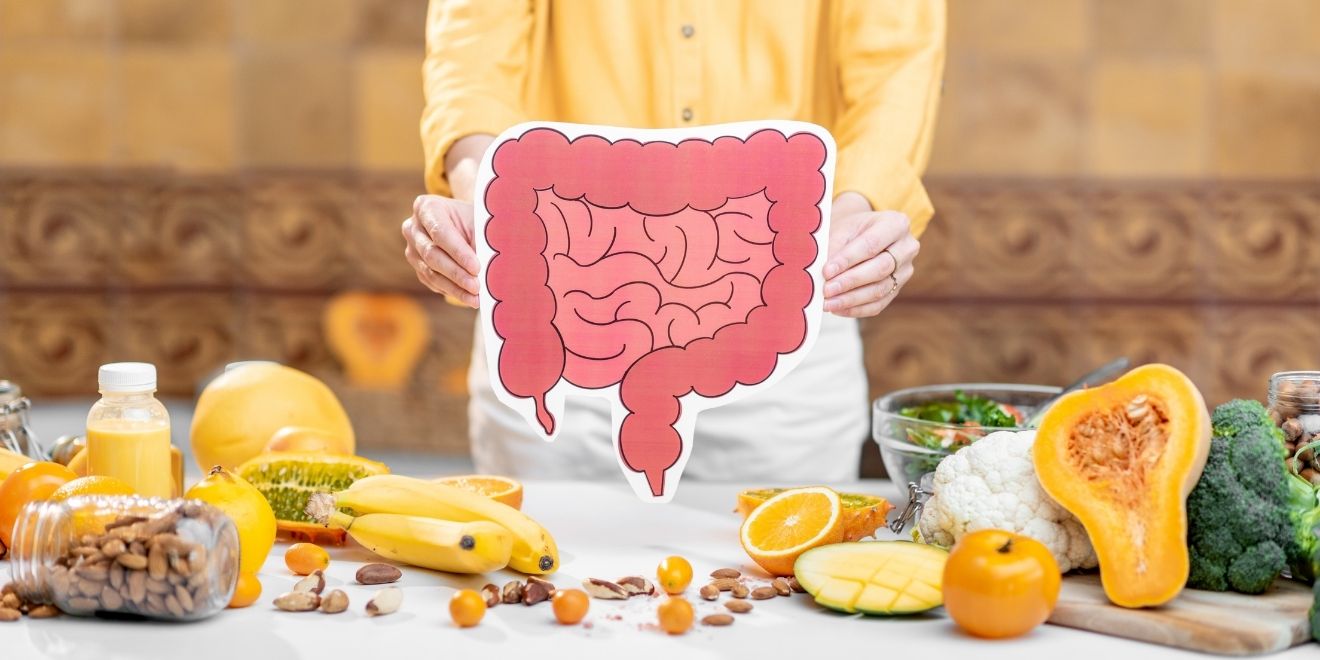
Have you noticed how many times you turn to your gut to work out how you are feeling? Stress does affect the gut — The Mind-Gut Connection is real!
We even call this our gut reaction. When we are about to get on a stage and present to a crowd, we feel butterflies in our stomachs. When we are rejected, we feel gutted, literally sick to our stomach.
The mind-gut connection – how does stress affect the gut?

This is a pertinent question when you consider these truths. There is an undeniable link between what happens in our brain and our gastrointestinal (GI) tract. It is not a one-way relationship either. The health of our gut directly influences our ability to regulate our mood. How many times have you been “hangry” in your life?
Let us dive into this deeper and see how helping one can help the other. Or, in other words, treating our bodies as one whole system.
What happens to our body when we are stressed?
The part of the brain that elicits that stress response has not evolved much for thousands of years. It is still trying to protect us from predators.
Consequently, when you receive that angry call from a customer that makes you feel threatened, your brain treats it on the same level as being pursued by a saber-toothed tiger. It releases a hormone, cortisol, that helps you to run fast or fight ferociously.

The consequence on our body when we are under threat is dramatic.
Our blood pressure rises, our heart pumps faster, we breathe quickly and our muscles tense, including those muscles in our GI tract.
Not only does this tensing in our gut cause immediate symptoms such as nausea and diarrhea, but over a longer period can cause disorders such as IBS and GERD.
The body when constantly under threat diverts blood flow away from the gut to other parts of the body designed to protect us. If you ever wonder why you lose your appetite in awful moments, this could be why.

Our levels of stress are then worsened by the lack of fuel getting to the parts of the body that helps us thrive. Therefore, the deterioration caused by stress cycles downwards unless actively addressed.
How can we handle the impact of stress on our system?
There have been times in life when I have been stressed, felt sick to my stomach, and not been able to work. The cries of “it’s all in your head” were loud – and massively unhelpful.
The overthinking and anxiety may have started as a thought process, but the consequences were no longer isolated to my mind. The idea that any physiological symptoms I was feeling were imaginary or an illusion added further to my distress. It also stopped me from addressing some of the root causes of why this stress was getting worse.
The impact on your GI tract is real. The inflammation and restricted blood flow cause real physical damage to your system. While this sounds like bad news, it is not.

There are proactive strategies you can take to overcome this.
First, you can change your diet. Including more fiber and probiotic foods will help immensely. Prebiotics fertilize the good bacteria that help your GI tract work effectively.
You will find these in legumes, nuts, and green vegetables.
You can also take on board probiotics, which can be found in some yogurts and raw cheeses, to bolster your supply.
Removing alcohol and highly processed foods can help your system and maintain an even mood too. The consequences of taking in too many sugars are obvious on the system if you have ever experienced a drop in blood sugar.
Equally, to help even out mood, you should drink less caffeine and instead drink more water. Water is a secret sauce for our internal systems and can help with gut health too.

Second, you can work on other lifestyle choices. Taking up meditation can really help to calm the mind. Overthinking can become like an avalanche.
What starts with a snowflake builds into a snowball until it rolls out of your control. To stop this cascading of thought, you need to bring yourself into your senses and to feel the world around you. This is often called grounding, as you can feel the floor beneath your feet. You might also know it as being present, as you are focused on the information provided by your senses right there and then.
Other factors such as sleep and exercise can have a significant impact too. Sleep not only revives us but gives us the space to process unconscious worries and concerns.
Exercise helps with sleep but also prompts the release of hormones that eat up cortisol in the body, making us feel lighter and as though the weight of the world has been released from our shoulders.
If you do not want to undertake high-energy exercise, then you should consider yoga. Not only is meditation an intrinsic part of yoga, helping to calm the mind, but you also do exercises that are good for blood flow to the intestinal tract.

Some of the inversion moves are particularly helpful at relieving ailments in the stomach area.
In short
You need to trust what your gut is telling you about your lifestyle. If your stomach is happy, it usually means you are on the path to contentment. You are living a life that is sustainable and will lead to all-around wellbeing.
If you find that you are often feeling nauseous or your patterns for going to the toilet are disturbed, you might want to consider your mental state. Remember, it is not that these ailments are in your mind, just that your wellbeing is relying on interconnected systems.
The advice for how to manage the mind-gut connection sounds a lot like the advice your parents used to give you. Get to bed early, eat your greens, get out and exercise, and avoid those sugary foods. How annoying is it that they knew what they were talking about?








